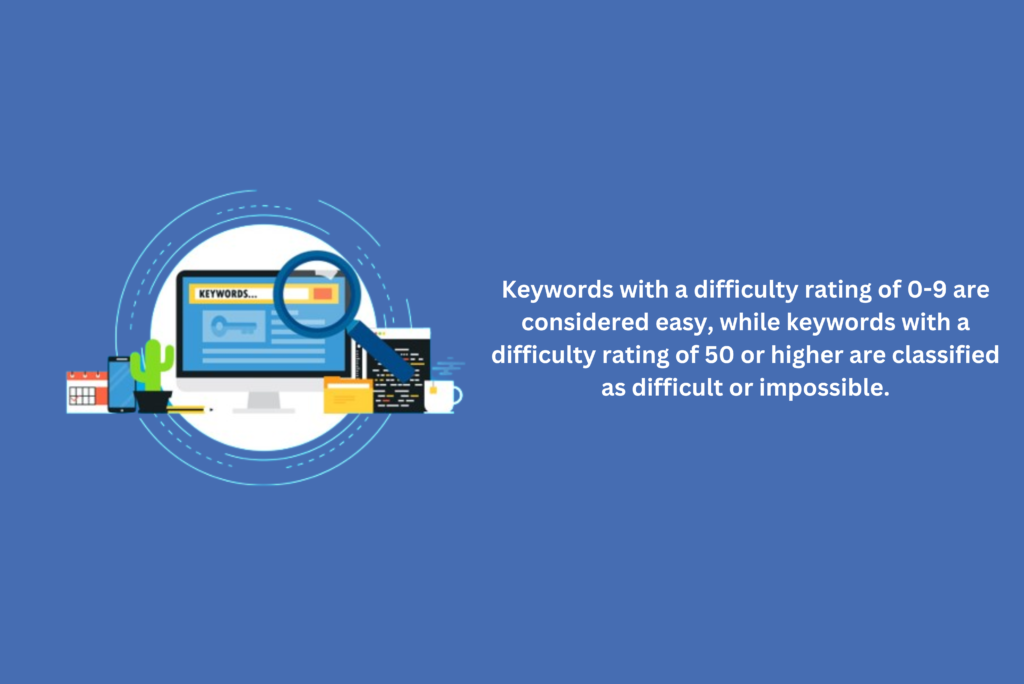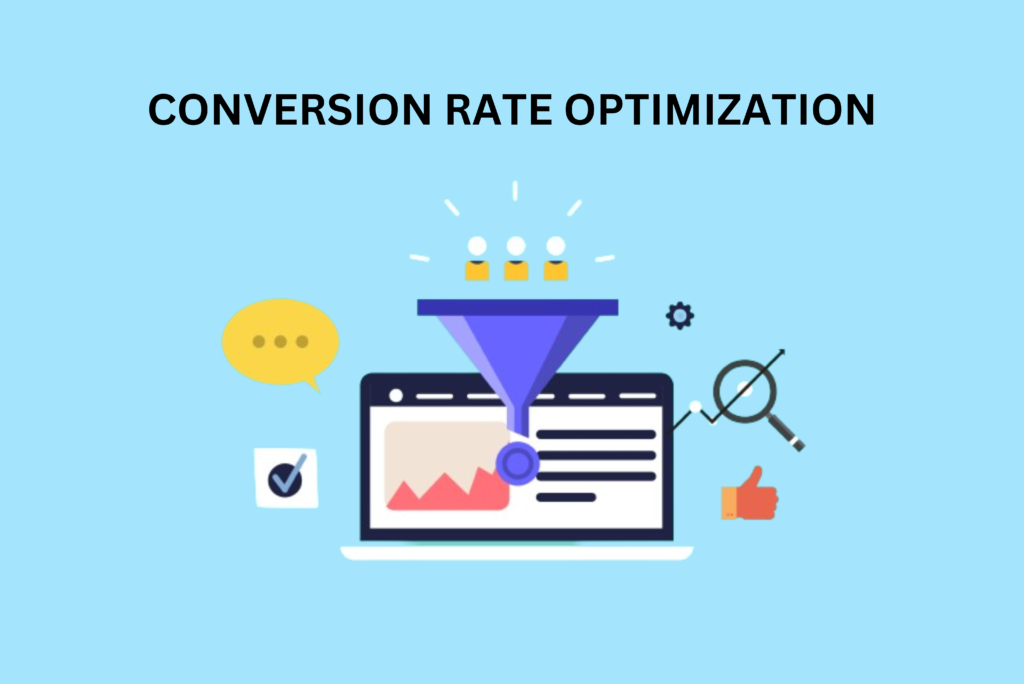7 Reasons Why Keyword Research Is Important For Your Coaching Business
Importance Of Keyword Research In SEO

Is keyword research still important for your coaching & consulting business? The answer to that question is clearly yes! Understanding why keyword research is important is crucial for an effective SEO strategy.
Every day, billions of people conduct searches on the Internet.
But how do you ensure that your website is visible to those looking for your services?
Here’s where keyword research comes in!
In this article, we’ll explain what keyword research is, and why it’s important for life coaches.
What is Keyword Research?

Before we can discuss why keyword research is important for SEO, we must first define what it is.
Keyword research is the process of identifying popular words and phrases that people use in search engines to find the information they are looking for.
The goal of keyword research is not only to identify keywords that are relevant to your business and target audiences but also to find ‘good’ keywords that will generate a lot of traffic to your website while not being too competitive. Keywords are essential for identifying your market niche, determining what you want to do to own your space, and positioning yourself as a coach in your market.
Researching keywords is foundational in SEO; hence, understanding why keyword research is important is essential. They also play a role in search engine optimization (SEO), which means that conducting keyword research will help you rank higher in search engine results for keywords that users type into search engines rather than specific URLs.
There are numerous methods for conducting keyword research, including using Google organic search, Google Keyword Planner, Google Analytics, and other keyword research tools. Depending on the type of business you run and the keywords your website targets, one method may be more effective than another.
Keyword research should be the first step that all website owners and marketers take when creating new content for a website or client. By grasping why keyword research is important, businesses can tailor their content to meet customer needs.
Why is Keyword Research Important for SEO?

With so many different aspects of SEO, such as backlinks, receiving increased public attention, it’s easy to overlook the importance of keyword research in SEO. Businesses often overlook why keyword research is important, leading to suboptimal online visibility.
Related: How AI Will Revolutionize The Future Of SEO
Link Building Strategies: 15+ Easy Link Building Techniques in SEO for 2024
Data-driven insights illustrate why keyword research is important for effective digital marketing strategies. Here are 7 reasons why every SEO and marketer should prioritize keyword research when creating content or launching a new SEO campaign.
1. Effective Keyword Research Helps You to Understand Your Search Intent

When conducting keyword research, a content creator can gain insight into what people search for online.
This information is critical because it provides content creators with immediate feedback on whether or not a content idea is worth investing time and resources into.
Essentially, you want to create content based on keywords that people are already using to find information online. It makes no sense to create content based on what you believe your target audience is looking for.
2. Use Keyword Research to Understand the Competitive Landscape

Mastering why keyword research is important enables marketers to stay ahead in competitive markets. Keyword research helps SEOs understand the competitive landscape by providing a clear picture of who they’re competing with.
Related: Is SEO Worth It For Small Businesses: Proven SEO Tips
For example, suppose you have an idea for a piece of content that you want to create. By conducting the right keyword research, you will be able to determine which domains are already competing for the relevant keyword(s).
Keyword research provides insight into how difficult or easy it will be to rank at the top of Google and other search engines.
This brings us to the next reason why keyword research is important in SEO.
3. Keyword Research Is Important to Identify Low Competition Content Opportunities

Comprehensive keyword analysis reveals why keyword research is important for uncovering untapped opportunities. When conducting keyword research, you will be able to identify content opportunities with low competition.
Many digital marketers emphasize why keyword research is important in driving organic traffic. By targeting low-competition keywords, you increase the likelihood of your content attracting more visitors and organic traffic to your website via search engines.
The opposite is also true: keyword research will reveal which keywords you should avoid targeting because established domains have already ranked for them.
Most keyword tools can be used to identify less competitive keywords and filter out high-competition keywords.
4. Keyword Research Assists in Generating New Content Ideas

Another reason keyword research is important for SEO is that it helps to generate new content ideas.
Coming up with new blog content ideas can be difficult at times. Fortunately, most keyword research tools allow you to find new keywords and content ideas.
By entering your competitor’s domain, you can discover all of the keywords that are currently on their site and ranking.
5. Keyword Research Assess the Difficulty to Rank

Although looking at the ‘competition’ of a keyword in GKP is useful for getting a quick sense of the competition, it does not provide us with the full picture. Implementing targeted keywords can significantly impact website ranking, highlighting why keyword research is important. There is little point in targeting keywords if the chances of your site ranking high for those keywords are slim to none. This is referred to as SEO or keyword difficulty.
Keywords with a difficulty rating of 0-9 are considered easy, while keywords with a difficulty rating of 50 or higher are classified as difficult or impossible. Essentially, if you discover keywords that are already being targeted by high-quality domains with a lot of traffic, we recommend going with less competitive keywords.
6. Keyword Research Helps in Finding Trends

Understanding when people search for keywords can also help you decide when to post a blog or update your website. Neglecting keyword research can hinder website performance, underscoring why keyword research is important. Use Google Trends to get an idea of peak times.
By tracking the popularity of specific keywords over time, businesses can identify trending topics, products, or services in their industry. This knowledge allows them to adjust their strategies accordingly, capitalize on emerging trends, and stay ahead of the competition. Market trends underscore why keyword research is important for adapting to evolving consumer preferences.
7. Keyword Research Helps in Finding Keywords with High-Conversion Rate

Keyword research helps businesses identify keywords with a high conversion rate by allowing them to analyze metrics such as search volume, competition level, and user intent. Knowing why keyword research is important helps businesses align their content with user intent.
By thoroughly researching these factors, businesses can identify keywords that are highly relevant to their products or services and are likely to attract users who are actively looking to make a purchase or take a specific action, as well as their keyword difficulty.
Keyword difficulty can also indicate that a keyword is overly broad. Typically, the shorter the keyword, the more difficult and competitive it is to rank for. These keywords are referred to as ‘head’ keywords.
Head Keywords: 1-2 words that are extremely broad and have a high monthly search volume, competition, and keyword difficulty.
Long-tail keywords: It contain 3 or more words. Because these are more specific, they have a higher conversion and click-through rate.
What are the top keywords that your ideal customers are looking for?
Exploring why keyword research is important can reveal valuable insights into consumer behavior. The question is, do you know what your ideal clients are looking for and how to use that information to attract them? Strategic keyword selection exemplifies why keyword research is important in driving qualified leads. If you don’t, it’s time to conduct keyword research.
Related: 7 SEO Lead Generation Techniques: How to Generate Leads Through SEO
Keywords are words or phrases that people use in search engines when looking for information on the internet. They may be looking for information or to make a purchase. Whatever they are looking for, their search begins with a keyword or phrase. There are two ways to look at keywords:
- Keywords you want to rank high for in a Google search.
- Exact Keywords people will use in a Google search.
The solution is to research your market’s keywords ahead of time and focus on those with the best chance of success.
Keyword research is the cornerstone of any effective digital marketing strategy. It will assist you in better understanding your target audience and how they speak to find your services. If you want to attract new clients, start with keyword research so you don’t have to guess which keywords to target.
Recognizing why keyword research is important empowers businesses to optimize their online presence. Many business owners and online marketers make the mistake of selecting keywords based on their own opinions rather than conducting preliminary research.
Types of Keywords
Before we get into keyword research tips, let’s go over the two main types of keywords: long-tail and short-tail keywords.
Long-Tail Keywords
Long-tail keywords are key phrases that consist of 5 or more words.
Example: Why Keyword Research is Important

Targeting long-tail keywords is an excellent way to gradually increase SEO traffic because they have much lower competition than short-tail keywords.

Furthermore, these keywords have higher conversion rates because they are used by searchers seeking specific information, products, or services. Utilizing long-tail keywords demonstrates why keyword research is important for targeting niche audiences.
Short-Tail Keywords
Short-tail keywords are exactly what their name implies: short. These keywords are usually one to two words in length.
An example of a short-tail keyword is “keyword”.

If you conduct some keyword research on this subject, you’ll notice that the competition for this keyword and the search volume is much higher than the long-tail keyword “Why Keyword Research is Important”.

Because of the high level of competition, ranking for this keyword will be extremely difficult, requiring a significant amount of time and resources.
Another thing to remember about short-tail keywords is that they are typically very broad and not targeted. This means that these keywords don’t convert as well as long-tail keywords.
Integrating keywords across various content channels demonstrates why keyword research is important for cohesive branding strategies. In general, marketers and content creators should avoid targeting short-tail keywords, especially if the brand isn’t a market leader with a well-established reputation.
Keyword Research Tips
Here are some keyword research tips to consider:
Add Keyword Clusters on a Single Page
Keyword clusters are groups of keywords that are closely related but not identical.
One example of a keyword cluster is:

As you can see, these keywords have similar definitions but use different wording.
It would be a bad idea to create individual pieces of content for each of these keywords, as this could lead to keyword cannibalization.
Instead, one should combine all of the closely related keywords into a single piece of content.
Look at Google Suggest Phrases
Keyword research tools are essential for identifying content opportunities, but webmasters should also use Google Search to uncover keyword gems.
More specifically, Google Suggest can be a great resource for locating long-tail keywords that are frequently used to find information online.
Find Commonly Asked Questions
When conducting keyword research, you can also refer to Google’s “People also ask” section on the SERP.

This section contains questions submitted by Google users. Answering these questions or creating content based on them allows you to reach people who are looking for answers.
Summing Up

Keyword research is more than just finding words that your target audience may be searching for; it is also about finding quality keywords that will have a positive impact on your website.
If your keywords aren’t bringing in more traffic or converting more people (remember to use long tail search terms), it’s time to do some proper keyword research.
You might even learn a few things about your competitors and come up with some great content ideas.
Remember that keyword research is still important, but so is optimizing your on-page content for your target keywords. To ensure success, follow our keyword implementation guide.
Why Keyword Research Is Important FAQs
Q. What is the most important thing in keyword research?
Ans. The most important factor to consider when conducting keyword research is relevance. Here's why relevance matters and how it should influence your keyword research: 1. Relevance to Your Content or Business: The keywords you choose should be extremely relevant to your website, content, or business niche.
Q. Are keywords still important?
Ans. Keywords are important because they help search engines understand what your website is about. For example, if you have a finance blog and frequently use the keyword "finance" throughout your site, it is clear that the content is about finance.
Q. Why keyword research is important?
Ans. Keyword research allows you to determine which keywords are most effective to target and provides valuable insight into the queries that your target audience is actually searching for on Google.











Write a Comment